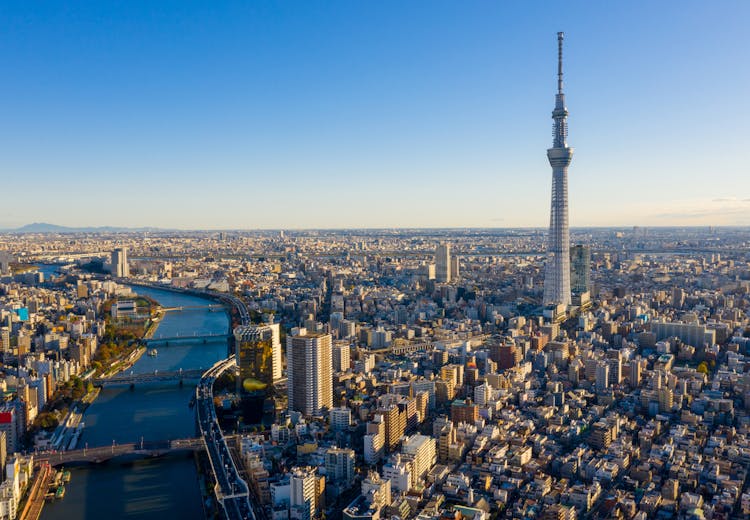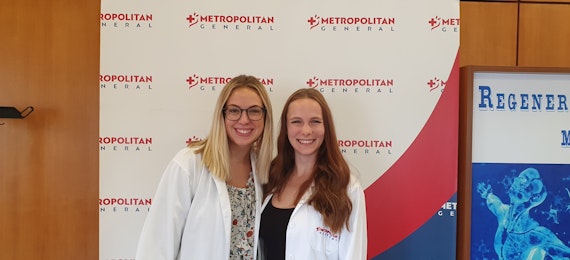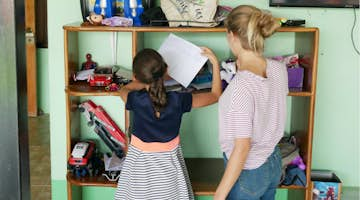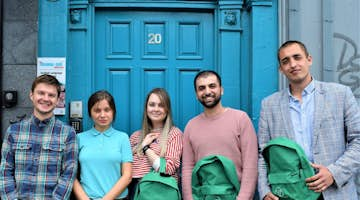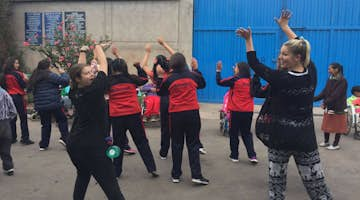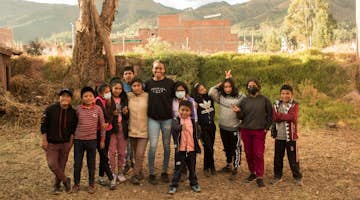
Youth Development & Education Internships in Tokyo
Assist hard working parents in Japan by interning in after-school centers, providing supplementary education to children, playing games and giving them valued exposure to the English language. Interns can also assist in schools and kindergartens, helping students between 3-14 years old.
What to expect from your Youth Development & Education internship:
- Experience the renowned Japanese culture
- Provide a valuable English resource for students eager to learn the language
- Take part in both formal and casual learning
- Spend time in Tokyo, a fascinating city famous for its pop culture and traditional culture
Your internship abroad host organization:
- Kindergartens
- Schools
- After school clubs
Internship details
Teach English and participate in activities with Japanese children and young students in kindergartens, schools or after-school centers, while experiencing the unique lifestyle in Tokyo.
This is an in-country internship, with accommodation provided. Click here to view remote Education & Youth Development internships that you can undertake from home.
Youth Development and Education interns in Tokyo are highly appreciated. Many Japanese parents work until late at night, so it’s normal for children to spend six hours or more at after-school care programs, where they do homework or play games. By joining this Youth Development and Education internship in Japan, you’ll assist in these programs, known locally as gakudos, and have the option to be placed in international kindergartens or schools during the day.
Regardless of your placement, interns in Tokyo are highly valued for providing students with casual or formal exposure to the English language. Interns don’t need to speak Japanese but must bear in mind that some students may not be able to communicate in English very well. In these instances, you may need to be careful to speak slowly and clearly, and have creative games or other solutions to overcome any language barriers you encounter. Interns who do have some Japanese language skills will have an advantage, as this will make it much easier to communicate with local teachers. Interns do not need to be native English language speakers but should have sufficient proficiency.
The internship role requires adaptability, cultural sensitivity, and a flexible attitude. Whether you’re helping to teach students English, sharing your own cultural background, or taking part in assistance with arts, music, theater, or other games, there is scope for diverse experiences. Interns should come prepared to primarily assist. If you would like to directly lead any classes, this needs to be discussed in advance, to understand individual skills, experience level and expectations. Preference to work with students of a particular age can be expressed but not guaranteed, as preferences are always subject to availability.
Importantly, interns must be aware that there is a strict professional dress code in Japan, which is very conservative. Clothing must be very tidy and quite formal. Dark, solid colors are best, worn with simple white shirts or blouses. Visible tattoos and piercings are not considered to be appropriate. Piercings are best removed and any visible tattoos would need to be covered in order to avoid causing offense. Hair should be naturally colored and kept very clean and tidy. Men should also be clean-shaven. Interns are urged not to wear statement jewelry pieces and makeup must be kept minimal. For example, accessories such as long, painted fingernails and false eyelashes / eyelash extensions are not considered to be acceptable. Many educational and childcare institutions will have policies related to child/student health and safety. Such policies will often dictate the required dress code. Interns who are unable to meet the required dress code conditions may be asked to amend their appearance, prior to being able to commence the internship.
In all cases, interns should expect that the first week of your experience will focus on settling in and gaining some introductory knowledge, as you will not “hit the ground running”. Rather, you should start with learning about the placement to gain an understanding of what you can build upon, develop, learn, and contribute. Ensure that you ask questions and provide feedback during the introductory period, so that your supervisor understands how you’re progressing. This will help them to better understand important details, such as how quickly you learn, what you find challenging, what you find interesting, etc.
Typical Schedule
-
In gakudos, interns participate from 3pm-9pm, Monday to Friday
-
In kindergartens or schools, interns participate from 8am-4pm, Monday to Friday
What are the career benefits of interning abroad as a Youth Development & Education Intern?
Youth Development & Education interns learn from a qualified and experienced supervisor, and can be involved in:
-
Teaching formal English lessons for students between 3-14
-
Preparing worksheets and other material for classes
-
Accommodating games and activities in after-school programs
-
Encouraging casual English language practice
Professional development opportunities:
-
Learn about teaching, developing lessons and educational materials
-
Gain experience teaching English as a foreign language to children
-
Experience the Japanese work culture
-
Enable casual English language education with students
-
Gain practical skills and boost your employability, with guidance from RISEWAY’s Experiential Learning Curriculum to support your learning and cultural intelligence.
Are you eligible for this internship?
Submit a free application so we can confirm your eligibility and check availability for your preferred dates.
Not sure which program to join?

Recommended online TEFL course
For all interns with an interest in developing skills as an educator, we also recommend an interactive Online TEFL Certification Course. The training offers tools and techniques over a 100-hour program. Upon completion, you’ll have earned experience in planning, designing, and adapting diverse language activities and materials. No previous teaching experience or training is required. You can sign up for the Online TEFL Certification Course anytime and you’ll pay the discounted RISEWAY rate.
Get TEFL certified onlineJapan photo gallery
What recent Youth Development & Education interns said about their experience
My favorite experience from my internship was getting to interact with the children by using both English and Japanese, we play fun games together, play outside and do DIY crafts. I learned a lot about interacting with younger elementary school students which I previously hadn’t spent much time doing. I also learned about education in Tokyo which I was really curious about. The internship is as good as the effort you put into it. So, if you work hard and try to make connections, it will go great. It’s good to ask when you have questions (if you have any), but you’re also expected to make decisions on your own.
My favorite thing about Japan and my internship was navigating the city by myself, getting really good ramen and really good sushi! During the internship, I learned how to manage my time. I think time management is a very good skill to have before coming to Japan but you can also evolve that skill while you're experiencing the internship in Tokyo too. Also, learning from children in an entirely different culture allowed me to learn more about how to care for children, which is something I hope to do in the future, through my professional work. To future interns - you need to know that Japan is very fast paced but you should know that the team are here to help you and they are super nice people. Even though you might not feel like you belong here, you truly do, because you are respecting and learning about the culture that is different from your own.
I choose to intern in Japan because I was really interested in learning a lot about the culture. The culture is very unique and very different to where I’m from, so I really wanted a chance to involve myself in that and experience what it’s like to live in Japan, and to also see the really beautiful sights that they have here. My internship was at a daycare centre. This program helped me in my personal and professional development, mainly with my communication skills. Because the children speak Japanese and I don’t, and at first, that was a big challenge to overcome, but I learned that facial expressions and gestures go a long way when talking to children and I was able to make good friendships even with people who did not speak the same language as, so it definitely helped with my communication skills. My advice for future interns is to come here confident and to be prepared to adjust to new situations.
I absolutely loved meeting new share house mates and going out and about in Japan with them. As a group, it was exciting to meet new people and experience new things together! Some advice I would give to future interns would be: don’t overthink it and don’t be scared to go into this new experience. Go with the flow and just enjoy your time!
Making new friends and meeting new people contributed a lot to my personal development. The Youth Development & Education internship in Japan helped towards my professional development as I had to go out of my comfort zone.
During my 7-week internship as a teacher at an international school, I had the incredible opportunity to teach English to Japanese children aged 2 to 9 years old. I chose this program because of my passion for fostering cross-cultural awareness and language exchange. This experience taught me the immense value of creating an inclusive and engaging learning environment. I gained valuable insights into the nuances of teaching English to young learners, developing patience, adaptability, and effective communication skills. The exposure to diverse teaching methodologies enriched my perspective and enhanced my abilities to tailor instruction to individual needs. As a result, I can offer a unique blend of cross-cultural sensitivity, linguistic expertise, and pedagogical innovation. My experience solidified my commitment to graduate studies in teaching English learners, where I aspire to further refine my teaching methods and contribute to bridging the gap between cultures through education.
To read all reviews, visit our reviews page.

Academic credit available for all internships
Get course credit from your college or university while completing your internship abroad or a remote internship program. It's a great way to meet your academic requirements and gain valuable experience at the same time.
Learn about course creditProgram fees
Applying for our Youth Development & Education Internship is completely free! The support package covers the assistance we provide in finding your internship and arranging your living accommodations in your host country, ensuring you thrive during your program.
Please note that a deposit of US$499 is required to confirm your place. The remaining balance (minus your initial US$499 deposit) is due at least 60 days before your internship start date.
Duration |
Program Fee (USD) |
|---|---|
| 5 weeks | $2,459 Equivalent to $70 /day |
| 6 weeks | $2,569 Equivalent to $61 /day |
| 8 weeks | $2,774 Equivalent to $49 /day |
| 10 weeks | $3,269 Equivalent to $46 /day |
| 12 weeks | $3,479 Equivalent to $41 /day |
- Airport pick-up
- Accommodation
- 24/7 in-country support
- Program orientation
- Dedicated support before, during, and after your internship
- In-country guidance for social and tourist activities
- Sourcing and securing your internship placement
- Personalization of your internship plan
- Coaching from your supervisor
- Documented portfolio of your experiential learnings
- Academic credit facilitation
- International reference letter
- Certificate of Internship Completion
- All meals
- All in-country transportation
- Visa (if required), flights, travel insurance (mandatory), vaccinations, criminal background check
- Transfer back to the airport at the end of your internship program
- Personal spending money for snacks, drinks, public transport, laundry, and leisure activities during your free time.
- A deposit of $499 (approximately 499) is required to secure your internship
- Balance of your Program Fee is due 70 days before your internship start date. The Program Fee payment can also be completed in installments through our Zero-Fee Payment Plan. Learn more.
- All payments attract a 5% transaction fee to cover international banking fees and currency charges.
- Terms and Conditions apply.
Free-time experiences & tours in Tokyo
Take your internship to the next level with RISEWAY's affordable activity and tour add-ons in Tokyo! Explore your options below and learn how to book them once you've been accepted onto an internship program.

While Japanese fluency is not a prerequisite to join an internship in Japan, learning some basic conversational Japanese will help maximize the impact of your internship experience! Interns interested in taking Japanese language lessons can arrange these directly with their local team once in Japan during their internship orientation.

While Japanese fluency is not a prerequisite to join an internship in Japan, learning some basic conversational Japanese will help maximize the impact of your internship experience!

Shodo (or Japanese calligraphy) is a centuries-old art form that is deeply steeped in culture and evokes beauty and harmony with each brushstroke. Learn to create your own work of art with Japanese hiragana and kanji (Chinese characters).
Japanese language lessons
Japanese language ability is not a requirement for interns in Tokyo, however we encourage interns to take advantage of the opportunity to learn some basic skills, which can enhance enjoyment of being in Tokyo, while also increasing professional, social, and cultural competencies.
Japanese lessons are offered through our local team in Tokyo and can be arranged once internship participation has been confirmed. Interns who wish to study Japanese for the first time are recommended to take the Hiragana/Katakana or Conversation course. Interns with an existing foundation of Japanese understanding may wish to take a placement test and join a more intermediate class.
If you’re planning on taking beginner lessons prior to your internship, please note that there are set start dates for these classes, which typically begin at the beginning of each month. You should therefore consider your internship start date accordingly and ensure you have your schedule planned before you book flights.
Weekends and travel
Tokyo is renowned for providing visitors to Japan with a wonderful experience. The cleanliness and safety of the city, combined with entertaining culture and nightlife, world class cuisine, helpful locals, and incredible shopping, have put the city at the forefront of the world’s best cities. Due to the sheer size of Tokyo, which is made up of 23 municipalities/wards or “sub cities” there are seemingly endless places to explore. We won’t list them all here but some of the popular areas for visitors include Shinjuku, Taitō, Shibuya, and Chūō.
-
Chūō is historically the commercial center of Tokyo and it’s most famous district is Ginza. Ginza is Tokyo’s most iconic shopping area and has been the commercial center of Japan for centuries. If you want to shop till you drop, this is the place to start. Even if you just want to wander around to take in the sights, it’s still a stunning place to be. Within Ginza, you’ll also find the famous Kabuki-za Theatre (home to traditional Kabuki performances) and the Shimbashi Enbujo Theatre (where Azuma-odori dances and Bunraku performances are held). The drama and comedy of performances at these theatres are relatively easy to follow. Be aware, shows at the Kabuki-za Theatre can often last for hours. Spectators stay as long as they want and comings and goings throughout are not considered offensive.
-
Since the end of the second World War, Shinjuku has rivalled Ginza as a major commercial center. The Shinjuku Station is one of the busiest in the world. Within this sub-city, you can check out the lively entertainment districts of Kabukicho and Shinjuku Golden-Gai. If you want to shop for electronics, then the huge stores surrounding the Shinjuku Station are the place to go.
-
One of Tokyo’s most famous sites is in Shibuya - the Scramble Crossing and Center-Gai. Young people are attracted to the area for music and fashion. However, if you’re looking for some green space within the city, you’ll enjoy the Meiji Shrine complex, located in an evergreen forest and enjoyed by many as a popular recreation and relaxation area.
-
The city’s largest green area is Ueno Park, located within Taitō. Apart from the gardens, Ueno park also includes one of the largest aquariums in Asia, plus lots of other temples and museums to explore (such as the National Museum of Western Art, where you can check out canvases by Cézanne, Monet, Manet, and Degas). Although Taitō is the smallest of Tokyo’s wards, it’s also home to Sensō-ji (Tokyo’s oldest temple, originally founded in 645 AD), as well as Tokyo National Museum, which houses much of Japan’s art and national treasures, and the National Museum of Nature and Science (“Kokuritsu Kagaku Hakubutsukan”). The latter is Japan’s oldest museum but also includes interesting modern displays on the latest scientific and technological advances.
Arrival and Orientation
Internships in Japan begin every Monday and interns may choose to spend a minimum of 5 weeks, up to a maximum of 12-24 weeks (depending on the temporary visitor visa conditions which are held by the intern). Exceptions to start date availability may occur when start dates are closed due to public holiday / festival disruptions or if the program has already reached capacity.
Airport pick up is included in the program fee. In order to receive this airport pick up, interns may fly into either the Tokyo International Airport (commonly known as Haneda International Airport - HND) or the Narita International Airport (also known as Tokyo Narita Airport - NRT). Interns are required to arrive on the Friday before their Monday start date, between 8am and 8pm. An extra charge applies to any airport pickups outside this timeframe. (If you arrive prior to 8am on the designated arrival date, then please wait until 8am for your pickup time). Upon arrival, interns will be met, greeted, and transferred by public transport (shuttle bus and/or train) to the accommodation.
Orientation typically takes place on the Monday and covers important details for your internship, including introductions, information about culture, customs, rules, expectations, safety, language lessons, cultural excursions, and more. Your specific internship placement orientation will follow the general orientation, as you’ll be shown how to travel to and from your internship and be introduced to the team you’ll be joining.
The last night of the accommodation is the Thursday night of the final week, leaving interns free to depart on Friday. You are responsible for organizing your own return transport to the airport, however our local team will be happy to assist with arrangements or provide guidance for taking the metro.
Please note that all participants are advised not to book flights until they have first registered to confirm their internship placement.
Check what's required to visit Japan
Check out the widget below to learn about the visa requirements for the Youth Development & Education internship in Japan, based on your country of residence.
Accommodation and WiFi
All interns in Tokyo are accommodated in dormitory rooms, within a sharehouse. Bedding is provided and guests have access to their own lockers within the rooms, for safe-keeping personal items. Shared dormitory rooms typically accommodate between 4-8 guests at any given time. Bathrooms are shared and common areas such as lounge, kitchen and laundry facilities are available at the accommodation for interns to access (there is a small fee per use for laundry machines).
It is important to be aware that sometimes the dormitories may be mixed-gender but efforts are typically made to ensure that rooming arrangements are same-sex, whenever possible. For those who would prefer to stay in a twin-share room within the sharehouse (sharing with just one another guest, for more privacy) accommodation upgrades are available, at an additional cost. Please ask us about this in advance if you’re interested - accommodation upgrades are subject to availability.
All interns are required to pay a fully refundable deposit upon arrival to the accommodation, at orientation/check- in. This is refunded to you upon check- out, provided that you have left your room and the house’s installations in proper conditions, as approved by local managers.
Due to the expanse of Tokyo, it’s normal to commute between the accommodation and internship placements via the Tokyo Metro. The normal commute time can be at least one hour and may require changes of metro line and platform. However, the system is efficient, precise and user-friendly, making it easy to get around and discover Tokyo.
Please note that the accommodation pictured in the photo gallery of this webpage is provided as an example. Since we may work with more than one sharehouse (depending on capacity), the exact room that you’re assigned may differ slightly from the example photos that you see. Rooms sizes, along with storage space, may also vary.
Meals
Internships in Tokyo do not include meals. Living at the shared house accommodation provides kitchen facilities where you are welcome to prepare your own meals and snacks. There are also dining options that work on a student budget, which are hearty and delicious. Smaller establishments (often counter-style) serve staples such as ramen noodles and yakitori (grilled chicken on skewers). A recommended budget of at least 2,000 Japanese yen per day (about US$20) is suggested for meals. Tap water in Japan is safe to drink.
Bear in mind that a recommended budget can vary significantly, as your personal spending habits and lifestyle choices are going to impact how much you spend. If you want to eat out all the time, this is going to cost you a lot more than accessing markets and being more conservative with your spending. In Tokyo, a typical fast food meal costs approx. US$5 and a coffee might set you back about US$3. A meal in a middle-class restaurant for two people costs on average US$40.
Essential country information
| Capital | Tokyo |
| Population | 127 million |
| Languages | Japanese |
| Currency | Japanese Yen (JPY) |
| Time zone | UTC+09:00 |
Weather and climate:
The climate of Japan varies from north to south, and west to east. Summers in Tokyo are short, warm, muggy and wet. This season typically lasts from late June through mid/late September. The warmest month of the summer season is usually in August, when the temperature averages 80°F (26°C).
The cooler months are from early December to late March. During the winter, the coldest month of the year is typically January, with an average temperature of 41°F (5°C).
Tokyo experiences rainfall year round but the summer months are typically wetter than the winter time. September is usually the wettest month, with December generally being the driest.
Cherry blossoms are the obvious draw to Tokyo in the springtime (early March through early June) - it’s also one of the most popular times to visit Japan, so it’s important to plan travel and book flights in advance. While the weather is mild in spring, there may still be the occasional hot or rainy day.
